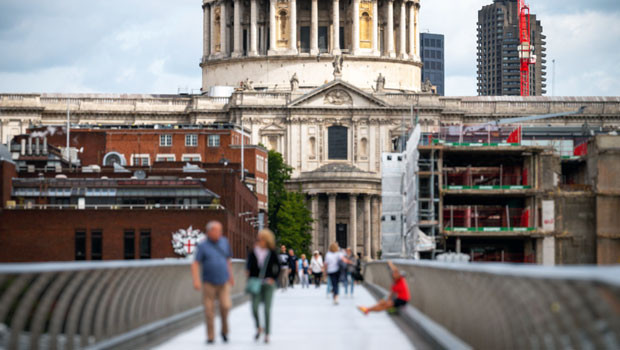UK economy shrinks in May

The UK’s economy contracted in May, official data showed on Thursday, although the decline was not as steep as expected.
According to the Office for National Statistics, GDP fell by 0.1% in May following growth of 0.2% in April. It was slightly better that forecasts, however, with most economists pencilling a fall of 0.3% because of the extra bank holiday for the King’s coronation on 6 May and the impact of public sector strikes.
The construction sector eased by 0.2%, following a fall of 0.9% in April - revised down from an earlier estimate for a 0.6% decline - while production output fell 0.6%.
The dominant services sector stagnated, compared to a 0.3% uptick seen a month previously.
The services sector also showed no growth in the three months to May, while production grew by 0.4% and construction by 0.2%.
Overall, GDP was flat in the three months to May when compared to the three months to February.
Monthly GDP is now estimated to be 0.2% above pre-pandemic levels in February 2020.
Samuel Tombs, chief UK economist at Pantheon Macroeconomics, said: “May’s GDP figures demonstrate that the economy remains listless and that the recovery signalled by many of the business surveys, such as the PMI, has not taken hold yet.
“The extra public holiday for the King’s coronation seemingly had a large impact on certain sectors – businesses in the arts, entertainment and recreation sector benefited – but others produced less, due to the lost working day. But the net impact on GDP appears to have been very small.
“Looking ahead, we continue to think that the economy will regain a little momentum in the second half, led up a pick-up in households’ real expenditure.”
Martin Beck, chief economic advisor to the EY Item Club, said: “May’s relative resilience was partly a reflection of a rebound in public sector output, as industrial action was less widespread than in April.
“Output likely increased in June, given last month had a normal number of working days. And given the relatively muted impact of May’s extra bank holiday, there’s now a good chance that GDP grew in the second quarter.
“This is encouraging news in terms of near-term performance of the economy. But the upside surprise from activity will add to the pressure on the Monetary Policy Committee to increase rates when it meets next in August.”